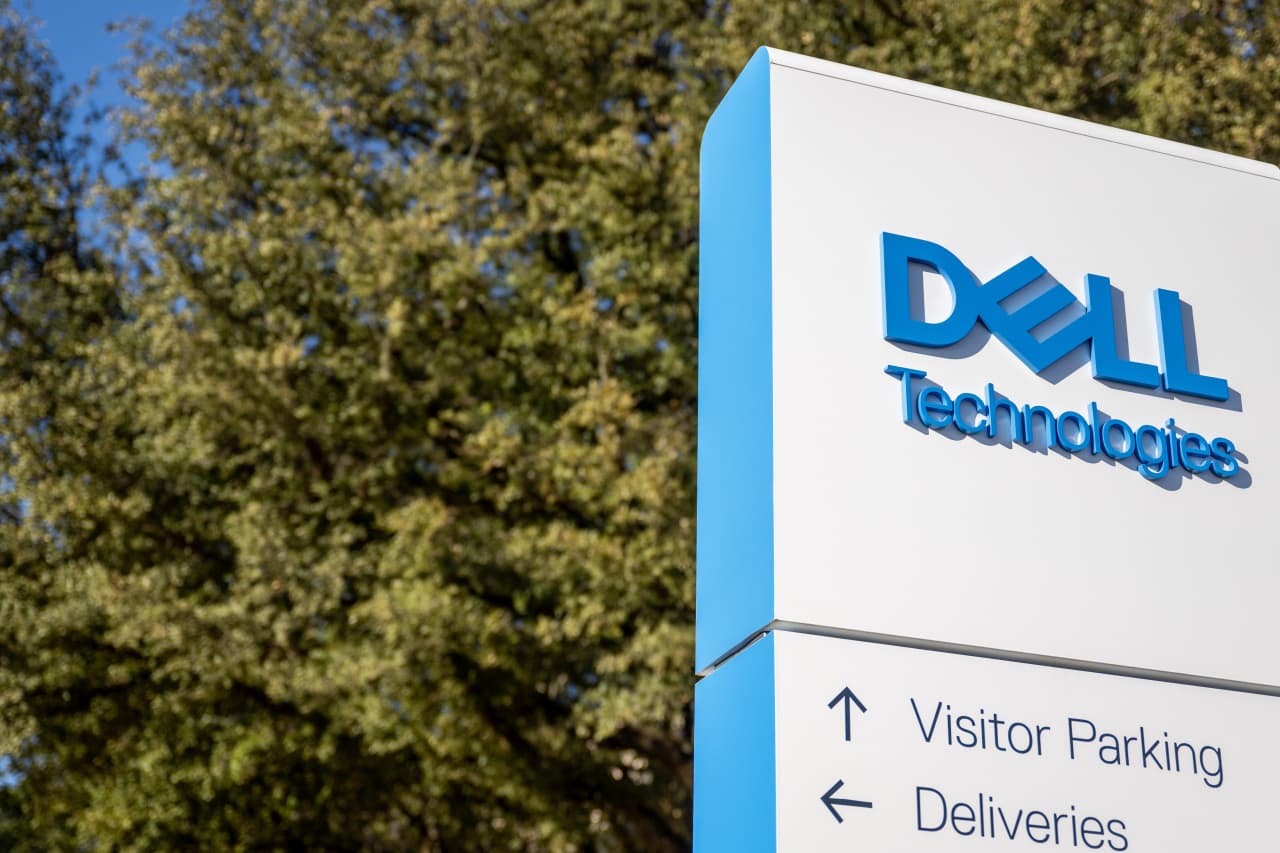[ad_1]
Look out, Super Micro investors, as Dell is starting to cement itself as a major player in artificial intelligence in the computer-server and storage market.
On Thursday, Dell Computer Inc.
DELL,
and its quarterly results also overshadowed another rival, Hewlett Packard Enterprise Co.
HPE,
with bullish comments about AI-related demand that the company is seeing. Dell said that it now expects to return to revenue growth in fiscal 2025, albeit at a low single-digit rate.
The company’s shares surged 19% in after-hours trading, as Chief Operating Officer Jeff Clarke and Chief Financial Officer Yvonne McGill spent much of their time on the earnings call answering analysts’ questions about the strength of AI demand and what products it is affecting, or will affect going forward.
“Demand for the computational components to do AI exceeds the supply picture,” Clarke told analysts. “And quite frankly, it’s refreshing to see, we have a high-growth category here. That growth is happening certainly in the public cloud, but increasingly more so in enterprises…I think it’s a big opportunity for us.”
In the fiscal fourth quarter, Dell said it shipped $800 million of AI-optimized servers, which Bernstein Research analyst Toni Sacconaghi pointed out is still less than 5% of the company’s total revenue. He voiced concern about the company’s projection for lower profit margins in the fiscal first quarter, due in large part to the AI servers. Dell said it was due to product transitions in the quarter, such as adopting the new Nvidia Corp.
NVDA,
H200 chips and Advanced Micro Devices Inc.’s
AMD,
new MI300X chips.
McGill also cited inflationary costs for components, and a tougher competitive environment.
Among Dell’s competitors is Super Micro Computer Inc.
SMCI,
which has gained share in the server market in the past year as it has focused on the needs of data-center and hyperscaler customers for AI, and offered product differentiations in a low-margin business such as liquid cooling, a feature once only used in high-performance supercomputers, to cool down servers running compute-intensive graphics chips from Nvdia and others.
Also read: Super Micro’s stock price may fully reflect the AI boom.
Dell, for its part, said that liquid cooling will not yet be needed until customers start using Nvidia’s H200 chips, but that the power-management issue is a opportunity for Dell to “showcase its engineering and how fast we can move,” to make liquid cooling perform at a large scale. Dell also said AI will bring opportunity to its services business, as it helps customers deploy AI, and down the road to its storage business.
Hewlett-Packard Enterprise, in contrast, saw a sharp decline in its networking business, which dragged down its stock 4% in after-hours trading Thursday. HPE also said it did not get enough supply of GPU chips for AI servers, which weighed on its results. It has a backlog of $3 billion in GPU orders, and its pipeline is well above that.
Even so, HPE is shrouded by a big 14% decline in total revenue, fueled in large part by its networking business, and one analyst wondered whether it was in part due to a customer pause ahead of its $14 billion acquisition of Juniper Networks Inc.
JNPR,
HPE CEO Antonio Neri said the company had not lost any customers due to the pending Juniper deal.
Dell clearly had the more bullish call and outlook, as the AI boom starts to filter down from chips to the server hardware that they are built into. Super Micro investors should be aware and start paying attention, because Dell is clearly on its heels.
[ad_2]
Source link

